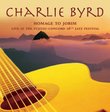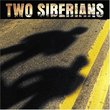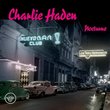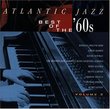| All Artists: David S Ware Title: Corridors & Parallels Members Wishing: 1 Total Copies: 0 Label: Aum Fidelity Release Date: 9/18/2001 Genres: Jazz, Pop Style: Avant Garde & Free Jazz Number of Discs: 1 SwapaCD Credits: 1 UPC: 642623301920 |
Search - David S Ware :: Corridors & Parallels
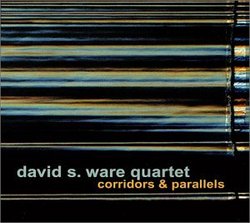 | David S Ware Corridors & Parallels Genres: Jazz, Pop
Tenor saxophonist David S. Ware's quartet has become a key institution of the "ecstatic" movement--latter-day free jazz--delivering nonstop intensity with the leader's vast, harrowing wail, the complex detailing of pianist... more » |
Larger Image |
CD DetailsSynopsis
Amazon.com Tenor saxophonist David S. Ware's quartet has become a key institution of the "ecstatic" movement--latter-day free jazz--delivering nonstop intensity with the leader's vast, harrowing wail, the complex detailing of pianist Matthew Shipp and bassist William Parker beneath, and the roll and tumble of a series of drummers. Corridors and Parallels maintains much of the band's heat, but breaks new ground with Shipp's shift to synthesizer. Whether it's the distancing effect of electronics or the suddenly broadened sound palette, the group is essentially reborn, pressing into fresh territory and touching on genres unheard in their previous work. Some of the tracks seem frankly experimental, testing the possibilities of the electro-acoustic relationship. "Straight Track" has Shipp developing a Sun Ra-like mix of the cosmic and the kitsch before Ware roots the music in his familiar, soulful expressionism. "Jazz Fi-Sci" further exploits that contrast with call and response between the acoustic trio of Ware, Parker, and drummer Guillermo E. Brown against Shipp's passages of burbling, skittering electronics. The music is far more compelling when the elements are integrated. "Superimposed" uses marimba-like programming to layer dense polyrhythms of electronics and percussion, creating an African-sourced field for Ware's sustained power. The title track is the most arresting, a brilliant amalgam of funk beats and Middle Eastern sonorities, with the bowed drone of Parker's bass bridging the shennai-like call of Ware's tenor and Shipp's own electronic figures. Occasionally, the results are more interesting than musically successful, but this is an important CD for both the quartet and the style that they center. --Stuart Broomer Similarly Requested CDs
|
CD ReviewsAn Experiment - Not Quite an Accomplishment Christopher Forbes | Brooklyn,, NY | 03/23/2004 (3 out of 5 stars) "Much has been made of the "new" direction that this album represents for the Ware quartet. Most of this hype centers around the presence of electronics on the disc. Certainly this disc represents a radical departure from Ware's more mainstream but still impressive albums for Sony. Where on the Sony albums, Ware seemed to be channeling late Coltrane through Charles Lloyd, this disc marks the return of Ware the ecstatic Ayler disciple. So to me, rather than marking a new direction in Ware's work, this disc is a return to form, albeit with a few gimmicks and some twists. The album does mark some interesting departures for the group. Stylistically, the work on the album is less compositionally based and ranges freely between avant-garde energy jazz blowouts, an Africanized romp, some very impressive Middle Eastern inspired blowing and even a ballad. Though there are "tunes" like Corridors and Parallels, which obviously has a predetermined theme, much of the album sounds like a studio experiment, with grooves and general shape as the determining factor rather than the earlier free jazz "heads" that were the stock in trade of the group in the 90s. The results are mixed. Straight Track noodles around for a while until Ware enters, then things ignite. Jazz Fi-Sci is centered an old-fashioned "trading fours" session between Ware on tenor and Shipp on synthesizer. As interesting as this concept might be in theory, the effect is rather weak, partly because Shipp's chosen program is not particularly interesting as a solo voice. Superimposed, the African jam is one of the outstanding tracks. It features a percussion jam centered on a synthesized marimba sound, over which Ware blows a scorching solo. Sound-a-bye is an interesting sonic texture ballad, but it goes on too long and too little happens. Corridors and Parallels is the other really outstanding track, featuring a beautiful bowed melody from William Parkers inimitable bass over which Ware blows with the intensity of a Sufi musician. Somewhere is another wonderful Parker feature. The bass player coaxes some amazing sounds out of his instrument over an otherworldly soundscape. Spaces Embrace has a bluesy quality that is intriguing, and Ware's tone is at it's raspy best. And Mother May You Rest In Peace is a gospelized ballad and dedicated to the memory of the tenorist's mother. To me though, the album's central gimmick mars it. I have struggled long and hard to come to terms with Matthew Shipp as a pianist. For years I didn't get the hype. Now I am learning to appreciate his strong points, an interesting sense of construction, a unique blending of the tone clusters of Cecil Taylor with a piano style that owes almost as much to hard boppers like Horace Silver and Bobby Timmons as it does to any 60s pianist. But the synthesizer just isn't his instrument. The "ingenious programming" that many reviewers have commented on is actually not that ingenious. Any user of a Roland keyboard product will recognize the programs as straight "out-of-the-box" Roland user programs. This in itself is not such a big deal, though it shows no special ingenuity on Shipp's part. But his approach to the instrument is fairly unimaginative. On Jazz Fi-Sci Shipp noodles around like Sun Ra at his kitschiest, and it's not particularly attractive. On Superimposed, he uses a pad sound, which is meant as a background wash, as his solo instrument voice and it is singularly ineffective. On some of the other tracks, his use of the instrument is a little more in keeping with the nature of it, but even in such tracks like Corridors and Parallels, the use of synthesizer relegates Shipp to a subordinate role in the quartet, effectively negating him as an equal creative member of the group. Perhaps the best thing that could have been done with this disc would have been to hire an expert, as Shipp has done on his two "jazztronica" albums for Thirsty Ear, and let Shipp do what he does best, play the piano. Then the disc would have less of a gimmicky sound, and we would get the well-oiled machine that we've come to expect from the Ware Quartet.In closing, this is not a bad album at all. It is even a welcome return to form from Ware himself after his "mellow" Sony phase. But it doesn't represent the group at it's best, or even a "new direction" for them. Rather it represents a stylistic experiment of the kind that musicians often attempt to get themselves out of a creative rut. It has much in common with similar experiments like Miles' late flirting with hip-hop, Ornette's Skies of America recording, or Charlie Parker with Strings...it represents not so much a bold new direction, as an attempt to inject life into a style that may fit the musicians too well. Perhaps with some work, this could truly develop into a new direction for the Ware quartet. But as it stands, this is a good album...not a great one. Worth checking out, surely; but not destined to go down as a classic album for this group, which is capable of much greater things." The well will never dry S. Hawkins | New York, NY | 09/04/2003 (5 out of 5 stars) "David S Ware is one of the most important post-Coltrane tenor saxophone players, and is easily my favorite. His playing is nothing short of thrilling, and his saxophone tone is so beautiful and personal that I fell in love with his music after the first 5 seconds of "Surrendered" (convenient title).That said, Ware was not one to reinvent the wheel when it came to instrumentation. The vast majority of his albums feature a classic quartet lineup. This is not meant as an attack on Ware; rather, it makes this release just a little more interesting.Released alongside a solo album, "Live in the Netherlands" (which you can't seem to get in the US), Corridors and Parallels features a fresh new approach to the quartet. Rather than simply recycle the tenor sax/piano/bass/drums of his earlier albums, Ware reaches out into the newer style of jazztronica (although god, I hate that term). His longtime pianist, Matthew Shipp doubles on synths, and the band also at times utilizes programmed beats (at least to my ears).The result, while occasionally uneven, is nevertheless mind-blowing. Ware's playing is as one would expect it - intense dramatic playing coupled with a surprisingly warm tone. Sometimes the synths can be a little too much - I don't care for the opening track, for instance, as it delves a little too much into kitsch. However, the majority of the album finds a beautiful combination of his more standard playing with the newer styles.That said, the finest track on the album, "Mother May You Rest in Bliss" is synth free. It features David S Ware playing over a Parker's arco bass and Brown's cymbal work, and it is one of the finest moments in music I've heard in quite a while.Ultimately, I even find myself returning to some of the track I don't care for as much. Ware is stretching even farther with this album than before, and this album is a brilliant, if slightly flawed, testament to that. This is an album that deserves far more recognition that it appears to have received." A splendid new direction for David S. Ware Jan P. Dennis | Monument, CO USA | 03/26/2003 (5 out of 5 stars) "Just because Matthew Shipp plays a synth doesn't make this free-jazz muzak. This is not a "quiet" album. Really, can you imagine David S. Ware, perhaps THE free-jazz sax ambassador of our era, notwithstanding Fred Anderson, Ken Vandermark, Jon Butcher, and Ivo Perelman, teamed up with William Parker and Guillermo Brown producing anything but take-no-prisoners, in-your-face sonic assaults? I'd want my money back, if that's not what I got here. And I do get it. In spades.Take "Straight Track," for instance--or, really, just about any cut ("Jazz Fi-Sci," a free-robotic number, "Superimposed," with its free-jungle vibe, "Corridors and Parallels," a free-hip-hop groove); it would be difficult to imagine a more committed, burning free-jazz sensibility than this. Maybe it's the faux "ballad" numbers--"Sound-a-Bye," "Somewhere," "Space Embraces"--not ballads, really, but more like Matthew Shipp's ambient jazz, and the neo-gospel number, "Mother May You Rest in Bliss," that have led some to regard this as something other than full-bore David S. Ware.I for one absolutely affirm this new direction for Ware. May his tribe increase."
|

 Track Listings (8) - Disc #1
Track Listings (8) - Disc #1